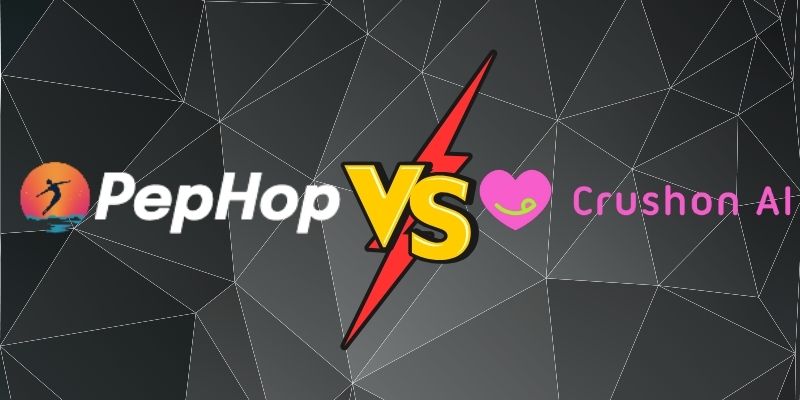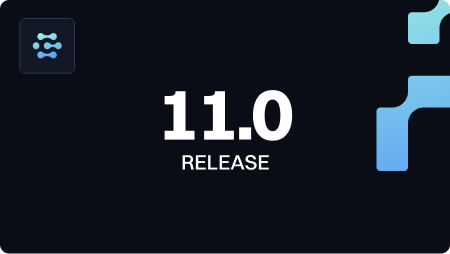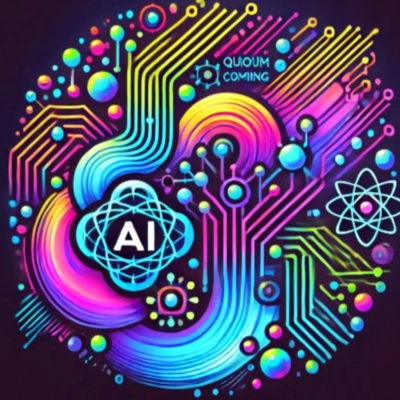Why We Need Purpose-Built Platform Engineering Tools for AI/ML
Artificial Intelligence (AI) or Machine Learning (ML)-powered applications are rapidly transforming industries, but supporting their complex workflows to improve developer productivity often overwhelms data scientists and software engineering teams. Traditional tools fail to meet the unique demands of AI/ML pipelines, leaving teams struggling with inefficiencies, scalability issues, and compliance challenges. Purpose-built Platform Engineering tools are the solution, enabling seamless development, deployment, and maintenance of AI/ML models. This article explores the need for a specialized platform for AI, and how Jozu establishes itself as a go-to solution in this domain to improve developer experience. Current state of Platform Engineering tools for AI/ML The current state of Platform Engineering for AI/ML is changing quickly. This is driven by the increase in demand for scalable, efficient, and reliable infrastructure to support AI/ML workloads. The trends and key features around Platform Engineering tools for AI/ML include: Focus on MLOps and automation: Tools like Jenkins and GitHub Actions automate repetitive tasks, enhancing reproducibility and collaboration. For example, DataRobot accelerates model deployment with prebuilt pipelines. Scalable data infrastructure: Platforms like Delta Lake and Snowflake handle diverse data types with real-time streaming and batch processing capabilities. Emphasis on security and compliance: Databricks and Immuta integrate governance and audit capabilities, enabling legal and ethical compliance. End-to-end workflow support: Solutions like Kubeflow and MLflow provide modular, scalable features for tasks ranging from data ingestion to model monitoring. Despite the advancements, several gaps and challenges persist among Platform Engineering teams that demand urgent addressing. Why robust platforms are necessary for AI/ML workflows The absence of a robust platform to support AI/ML workflows significantly hinders the efficiency, scalability, and reliability of machine learning projects. These challenges span across multiple stages of the AI lifecycle, including data preparation, model development, deployment, and maintenance. Without a specialized platform, teams encounter challenges at every stage of the AI lifecycle. Here’s why: Complex pipelines: Managing continuous retraining and evolving data with generic tools leads to inefficiencies. Unlike conventional software applications, AI/ML models require continuous retraining to remain relevant as data evolves and business requirements change. Managing this complexity with generic tools is ineffective. Scalability issues: Traditional systems can’t handle compute-intensive tasks like training large models or processing real-time data streams. Training and deploying ML models requires infrastructure that can scale dynamically. Difficult collaboration: Maintaining collaboration across diverse teams becomes difficult without a centralized platform. Lack of standardized processes or tools deters developer productivity and best project management practices. Reproducibility and experimentation: Without robust systems, tracking experiments, managing model versions, and reproducing results becomes difficult and increases the risk of errors and inconsistencies Skillgap: The lack of specialized platforms intensifies the need for advanced technical skills. This refers to hands-on training for ML and platform teams on the effective use of Platform Engineering tools. Cost management: Poor resource allocation for compute and storage leads to increased operational costs. Scaling AI/ML workflows can be costly, especially in cloud environments. Tool integration: Integrating multiple tools without a unified platform creates operational challenges. How Platform Engineering drives AI/ML success The focus of Platform Engineering is building and maintaining platforms that streamline development and deployment processes. This includes responsibilities like promoting the developer experience (DevEx), creating internal developer platforms (IDPs), and maintaining security and compliance. For successful AI adoption at scale, this requires robust infrastructure that provides smooth development, deployment, and maintenance of AI models. This is where Platform Engineering plays a vital role. Areas where Platform Engineering has played a key role in driving AI success: Efficient resource management Scalable cloud platforms like AWS enable dynamic resource allocation for model training. Tools like Kubernetes manage containerized workflows, ensuring efficient compute utilization. Standardized development environments Platforms such as Jozu Hub and Docker create standardized development environments across teams and systems. This promotes developer productivity through seamless integration and collaboration between data scientists, machine learning engineers, and DevOps teams. Data pipeline and s

Artificial Intelligence (AI) or Machine Learning (ML)-powered applications are rapidly transforming industries, but supporting their complex workflows to improve developer productivity often overwhelms data scientists and software engineering teams. Traditional tools fail to meet the unique demands of AI/ML pipelines, leaving teams struggling with inefficiencies, scalability issues, and compliance challenges. Purpose-built Platform Engineering tools are the solution, enabling seamless development, deployment, and maintenance of AI/ML models.
This article explores the need for a specialized platform for AI, and how Jozu establishes itself as a go-to solution in this domain to improve developer experience.
Current state of Platform Engineering tools for AI/ML
The current state of Platform Engineering for AI/ML is changing quickly. This is driven by the increase in demand for scalable, efficient, and reliable infrastructure to support AI/ML workloads. The trends and key features around Platform Engineering tools for AI/ML include:
Focus on MLOps and automation: Tools like Jenkins and GitHub Actions automate repetitive tasks, enhancing reproducibility and collaboration. For example, DataRobot accelerates model deployment with prebuilt pipelines.
Scalable data infrastructure: Platforms like Delta Lake and Snowflake handle diverse data types with real-time streaming and batch processing capabilities.
Emphasis on security and compliance: Databricks and Immuta integrate governance and audit capabilities, enabling legal and ethical compliance.
End-to-end workflow support: Solutions like Kubeflow and MLflow provide modular, scalable features for tasks ranging from data ingestion to model monitoring.
Despite the advancements, several gaps and challenges persist among Platform Engineering teams that demand urgent addressing.
Why robust platforms are necessary for AI/ML workflows
The absence of a robust platform to support AI/ML workflows significantly hinders the efficiency, scalability, and reliability of machine learning projects. These challenges span across multiple stages of the AI lifecycle, including data preparation, model development, deployment, and maintenance. Without a specialized platform, teams encounter challenges at every stage of the AI lifecycle. Here’s why:
Complex pipelines: Managing continuous retraining and evolving data with generic tools leads to inefficiencies. Unlike conventional software applications, AI/ML models require continuous retraining to remain relevant as data evolves and business requirements change. Managing this complexity with generic tools is ineffective.
Scalability issues: Traditional systems can’t handle compute-intensive tasks like training large models or processing real-time data streams. Training and deploying ML models requires infrastructure that can scale dynamically.
Difficult collaboration: Maintaining collaboration across diverse teams becomes difficult without a centralized platform. Lack of standardized processes or tools deters developer productivity and best project management practices.
Reproducibility and experimentation: Without robust systems, tracking experiments, managing model versions, and reproducing results becomes difficult and increases the risk of errors and inconsistencies
Skillgap: The lack of specialized platforms intensifies the need for advanced technical skills. This refers to hands-on training for ML and platform teams on the effective use of Platform Engineering tools.
Cost management: Poor resource allocation for compute and storage leads to increased operational costs. Scaling AI/ML workflows can be costly, especially in cloud environments.
-
Tool integration: Integrating multiple tools without a unified platform creates operational challenges.
How Platform Engineering drives AI/ML success
The focus of Platform Engineering is building and maintaining platforms that streamline development and deployment processes. This includes responsibilities like promoting the developer experience (DevEx), creating internal developer platforms (IDPs), and maintaining security and compliance. For successful AI adoption at scale, this requires robust infrastructure that provides smooth development, deployment, and maintenance of AI models. This is where Platform Engineering plays a vital role.
Areas where Platform Engineering has played a key role in driving AI success:
- Efficient resource management
Scalable cloud platforms like AWS enable dynamic resource allocation for model training. Tools like Kubernetes manage containerized workflows, ensuring efficient compute utilization.
- Standardized development environments
Platforms such as Jozu Hub and Docker create standardized development environments across teams and systems. This promotes developer productivity through seamless integration and collaboration between data scientists, machine learning engineers, and DevOps teams.
- Data pipeline and storage solutions
Tools like Airflow and Apache Kafka automate data ingestion and processing, while data storage solutions like AWS S3 provide scalable, secure repositories for large datasets. This is critical for AI adoption at scale.
- Automation
Workflow orchestration tools like Jenkins automate repetitive tasks, such as model retraining, testing, and deployment. This helps to minimize human error and enables developers to focus on innovation, reducing delivery time for new AI solutions or models.
- Security and compliance
Platforms such as AWS Identity and Access Management (IAM) enforce role-based access control and monitor for potential vulnerabilities, which enforces responsible AI practices.
Strategies to develop purpose-built AI/ML platforms
To address these challenges, organizations can focus on the following strategies:
Skill development and knowledge sharing: Platforms like Jozu Hub and GitHub enable version-controlled collaboration on code and model development. Internal knowledge management forums and communities such as KitOps Discord promote easy access to best practices, documentation, and tutorials to bridge knowledge gaps.
Improving security and compliance: Compliance-focused tools like Immuta *offer automated governance and policy enforcement. Also, tools like Okta manage and provide secure user access to applications and devices. *
Cross-platform compatibility: Platforms like Kubeflow and Databricks ****supports data ingestion, model development, and deployment workflows into a single interface. Others, like Docker, promote the deployment of AI/ML models on any infrastructure.
Cost optimization and resource management: Robust cloud platforms such as AWS, GCP, and Azure optimize resource usage based on model demand. Other serverless options like AWS Lambda enhance cost savings by charging only for the number of requests and execution time.
Promoting experimentation and innovation: KitOps and MLflow help machine learning teams track experiments and compare model performance across different versions, making it easier to align efforts between data scientists, engineers, and business stakeholders.
Streamlining ML Workflows
A major reason for platform engineering in ML is empowering ML teams to streamline their workflows. Two emerging solutions that support this motion are: KitOps and Jozu Hub.
Jozu provides a specialized platform that enhances the machine learning project lifecycle for AI/ML engineers, and is built on open source KitOps. Together, they bring:
Reproducibility and traceability
With KitOps, you can version and reuse your workflow components. KitOps packages and versions your AI/ML model, datasets, code, and configuration into a reproducible artifact called a ModelKit that can be securely hosted and versioned on Jozu Hub.
Collaboration across teams
KitOps provides a structured framework that promotes collaboration among teams. By building ModelKits on industry standards, Jozu supports platform engineers and machine learning teams (not just data scientists) to participate in the model development lifecycle.
End-to-end workflow management
KitOps uses Kitfile to provide a well-structured modular architecture. Kitfile is a configuration file written in YAML. It defines models, datasets, code, and artifacts along with some metadata for workflow management and clarity.
Scalability for production
As projects move to production, scalability becomes a priority for ML teams. With KitOps’s modular design, ML teams can integrate with enterprise registries through Jozu Hub for a seamless workflow.
What’s next for Platform Engineering and AI/ML
The trend of Platform Engineering for AI/ML will evolve to address current limitations while opening new frontiers in AI/ML applications. Here are the key trends and developments to watch for:
Convergence of AI/ML with emerging technologies: The rise of GenAI will facilitate the development of internal developer platforms optimized for generative AI applications.
Increased focus on explainability and ethical AI: More platform tools will evolve to comply with laws like the EU AI Act. Also, transparency in model decisions will become standard.
Advanced data integration and management: This refers to having a unified platform that consolidates structured, unstructured, and semi-structured data into a single platform for processing massive real-time data streams, improving AI/ML model responsiveness.
Greater automation with MLOps: This points to greater increase in the use automation to resolve failures with less human intervention. Also, important tasks such as data ingestion, feature engineering, and model training and deployment will run on fully automated pipelines.
Customized AI/ML platforms for industry use cases: This refers to the growth in domain-specific platforms tailored for industries like healthcare, finance, and logistics.
Conclusion
Platform Engineering for AI/ML is a critical function that is being addressed by many enterprise and open source tools like Jozu and KitOps. These platforms foster collaboration between teams, streamlining workflows, enforcing data governance, and improving knowledge sharing. Through tools like KitOps and Jozu Hub, it advances MLOps, enabling reproducibility, transparency, and accountability in model lifecycle management.
Start using Jozu to adopt best practices when creating a purpose-built platform for AI/ML teams.


















